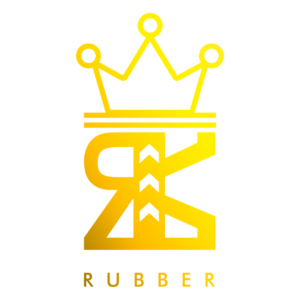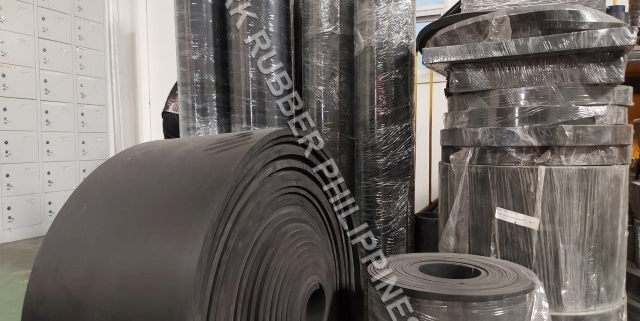Rubber Strips Manufacturer in the Philippines
Rubber Strips Manufacturer in the Philippines | RK Rubber Enterprise Co.
RK Rubber Enterprise Co. is a leading rubber strip manufacturer in the Philippines, known for its commitment to quality, reliability, and sustainability. The company offers a diverse range of rubber strips, including natural, synthetic, and neoprene options, with customization available for sizes, shapes, colors, and hardness levels. Rubber strips provide high durability and effective sealing capabilities, making them valuable in construction, automotive, manufacturing, and furniture industries. With a strong focus on eco-friendly practices and international production standards, RK Rubber Enterprise Co. sets a high benchmark for rubber strip production, with further insights into its manufacturing processes and product offerings available.
Key Points
- RK Rubber Enterprise Co. is a leading rubber strips manufacturer in the Philippines, known for quality and reliability.
- The company offers various customization options for rubber strips, including natural, synthetic, and neoprene.
- Rubber strips are used in various industries, such as construction, automotive, manufacturing, and furniture, for sealing and protection.
- RK Rubber prioritizes eco-friendly practices and sustainable materials in its production processes to minimize its ecological footprint.
- The company emphasizes high-quality production for durability, with competitive pricing and a strong reputation in the market.
Company Overview and Milestones
RK Rubber Enterprise Co. is recognized as a leading rubber strips manufacturer in the Philippines, boasting a strong reputation built through quality and reliability. As a key player in the industry, the company specializes in high-quality rubber strip production with a focus on durability and performance in product design. Its extensive product offerings cater to diverse applications, contributing to customer satisfaction and service excellence. A strong network of clients across multiple sectors has been established, further solidifying the company’s market position.
A competitive pricing strategy enhances RK Rubber Enterprise Co.’s market appeal, making it an attractive option for clients seeking high-quality rubber strips. Additionally, the company is committed to sustainability in its production practices, aligning itself with the global push for environmentally responsible manufacturing processes. By leveraging its expertise and resources, RK Rubber Enterprise Co. continues to drive innovation and excellence in the rubber strips manufacturing industry, solidifying its position as a trusted and reliable partner for clients in the Philippines and beyond.
Product Range and Types
The diverse needs of various industries and applications are addressed by a thorough product range encompassing multiple rubber strip types. RK Rubber Enterprise Co. specializes in the production of high-quality rubber strips, offering a diverse range of products tailored for various applications. Our product range includes natural, synthetic, and neoprene rubber strips, each with unique properties and characteristics.
Natural rubber is biodegradable and derived from tree sap but susceptible to UV damage. On the other hand, synthetic rubber is non-biodegradable and UV resistant, making it suitable for outdoor applications. Neoprene is a durable synthetic option often used in rubber strip production due to its excellent chemical resistance. Our rubber strips can be available in adhesive or non-adhesive options, offering flexibility for various installation requirements.
We also offer customization options, including various sizes, shapes, colors, and hardness levels to fit specific project requirements. Our expertise in rubber strip production enables us to cater to the diverse needs of our clients, providing them with high-quality products that meet their specific requirements.
Benefits of Rubber Strips
Rubber strips offer numerous benefits that make them valuable in various industries and applications, including enhanced durability and reliability, effective sealing capabilities, and customization options to meet specific client needs.
Their durability and reliability stem from the high-quality materials used in their production, making them suitable for both residential and commercial applications. Effective sealing capabilities enhance energy efficiency, contributing to long-term savings.
The benefits of rubber strips can be seen across various aspects of their application. The following table highlights some of these benefits:
| Aspect | Benefit | Description |
|---|---|---|
| Durability | Long-Lasting | Rubber strips can withstand various environmental conditions. |
| Sealing | Energy Efficiency | Effective sealing capabilities reduce energy consumption. |
| Customization | Adaptability | Rubber strips can be tailored to meet specific client needs. |
| Performance | Reliability | High-quality materials guarantee consistent performance. |
The benefits of rubber strips make them a valuable component in various industries, from construction to automotive. Their durability, effectiveness, and adaptability contribute to their widespread use.
Applications of Rubber Strips
Across various industries, rubber strips are utilized in a multitude of applications due to their versatility, durability, and adaptability. In construction, they are used for sealing doors and windows, while in automotive, they are essential for weatherproofing. Manufacturing also relies on rubber strips for machinery and equipment protection. Additionally, they are used in HVAC systems to improve insulation and airflow, and in industrial settings for safety and efficiency.
Rubber strips are also used in furniture protection to prevent scratching on floors, as sealants to block air and moisture, and to dampen noise from pipes and appliances. In extreme weather conditions, they are used for gutter and roof sealing. Their effectiveness in outdoor applications is attributed to their weather resistance. Moreover, rubber strips can be tailored to meet specific requirements, such as multiple color options, making them valuable in various industries. With their extensive range of uses, rubber strips have become essential in maintaining safety, efficiency, and performance in various sectors.
Manufacturing Process and Quality
Manufacturing high-quality rubber strips requires a stringent process that confirms the final product meets the required performance, durability, and reliability standards. At RK Rubber Enterprise Co., we adhere to international standards and employ advanced technologies to confirm consistency and excellence in our products. Our manufacturing process involves several stages, including material selection, compounding, extrusion, and vulcanization. We utilize state-of-the-art equipment to confirm precise control over temperature, pressure, and curing time, resulting in a high-quality finish.
To maintain the highest level of quality, we conduct rigorous testing and inspections at various stages of production. Our quality control measures include tensile strength testing, hardness testing, and visual inspection for defects or irregularities. We also adhere to a strict quality management system, confirming that all our products meet the required performance, safety, and reliability standards. By combining advanced technologies with stringent quality control measures, we can produce high-quality rubber strips that meet the demands of diverse industries, including automotive, construction, and manufacturing.
Product Customization Options
Tailoring products to meet specific requirements is essential in today’s competitive market, and RK Rubber Enterprise Co. offers a wide range of product customization options for its rubber strips. This flexibility in design enables clients to find the perfect solution for their unique applications.
RK Rubber Enterprise Co.’s product customization options include various sizes, shapes, colors, and hardness levels, allowing clients to select the ideal project characteristics. The company’s product customization capabilities are as follows:
| Customization Option | Description | Benefits |
|---|---|---|
| Size | Available in various widths and thicknesses | Enables clients to find the perfect fit for their applications |
| Shape | Custom shapes and profiles are available | Allows clients to design unique solutions for their projects |
| Color | Multiple color options are available | Enhances visual appeal and enables branding opportunities |
| Hardness Level | Available in various Shore A durometer ratings | Enables clients to select the ideal level of flexibility and durability for their applications |
Sustainability and Environmental Benefits
RK Rubber Enterprise Co. consistently prioritizes sustainability and environmental responsibility in its rubber strip production processes, often integrating eco-friendly practices and materials to minimize the ecological footprint. The company recognizes the importance of environmental stewardship and works to minimize its environmental impact through responsible manufacturing practices.
Some of the key sustainability initiatives implemented by RK Rubber Enterprise Co. include:
- Reduced energy consumption: The company has implemented energy-efficient lighting and equipment to minimize energy consumption and reduce greenhouse gas emissions.
- Waste reduction and recycling: RK Rubber Enterprise Co. has implemented a waste reduction and recycling program to minimize waste generated during production and reduce the amount of waste sent to landfills.
- Eco-friendly materials: The company uses eco-friendly materials whenever possible, such as natural rubber and biodegradable compounds, to reduce the environmental impact of its products.
Why Choose RK Rubber Enterprise
Opting for a reputable rubber strips manufacturer is essential for ensuring the final product’s quality, reliability, and performance. RK Rubber Enterprise Co. stands out as a leading rubber strips manufacturer in the Philippines, offering high-quality rubber strip production with a focus on durability and performance. RK Rubber Enterprise Co. contributes to customer satisfaction and service excellence with a diverse range of products tailored for various applications.
RK Rubber Enterprise Co. has established a strong reputation through quality and reliability, with an established network of clients across multiple sectors. A competitive pricing strategy enhances market appeal, and the company is committed to sustainability in production practices. The company’s extensive range of rubber strips includes natural, synthetic, and neoprene options, offering customization options such as various sizes, shapes, colors, and hardness levels.
Frequently Asked Questions
Can RK Rubber Enterprise Provide Certification for Their Products?
Certification of products is a critical aspect of quality assurance. Reputable manufacturers can provide relevant certifications, such as ISO 9001 or industry-specific standards, to guarantee compliance with regulatory requirements and customer expectations.
What Is the Average Lead Time for Custom Orders?
The average lead time for custom orders typically ranges from 7-14 working days, depending on complexity, material availability, and production capacity. Expedited options may be available for an additional fee, subject to manufacturer review and approval.
Are RK Rubber Enterprise’s Products Compliant With International Standards?
Compliance with international standards is essential for rubber strip manufacturers. RK Rubber Enterprise’s products adhere to stringent global benchmarks, ensuring conformity with ISO 9001, ISO 14001, and other relevant industry standards for quality and environmental management.
Do You Offer Material Testing and Inspection Services?
Material testing and inspection services are essential for quality assurance. Our laboratory conducts thorough tests, including tensile strength, hardness, and chemical resistance, to verify compliance with international standards and guarantee product reliability and performance.
Can I Request a Product Sample Before Placing a Bulk Order?
To guarantee product suitability, we offer sample requests prior to bulk orders, allowing clients to assess material quality, performance, and compatibility with their specific applications, thereby minimizing potential risks and guaranteeing ideal product fit.
Conclusion
The production of high-quality rubber strips by RK Rubber Enterprise Co. solidifies its position as a leading manufacturer in the Philippines. With a focus on quality, innovation, and sustainability, the company’s diverse product range caters to various industries. Effective sealing solutions, energy efficiency, and durability are guaranteed through its extensive range of rubber strip products. This commitment to excellence reinforces RK Rubber Enterprise Co.’s reputation as a reliable supplier of premium rubber strips.

